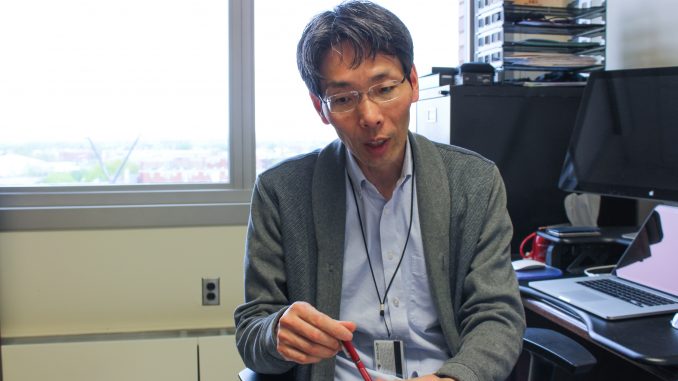
Researchers at the College of Engineering are developing a smartphone case that can distinguish cancerous tumors from non-cancerous ones.
The smartphone case will be able to detect “how hard or soft [the tumor] is,” as well as its size, said Firdous Saleheen, an electrical engineering Ph.D. candidate. The sensor, made out of silicon, will indent when pressed against the tumor. The smartphone’s camera then takes pictures of these indentations and sends them to a server, where they are analyzed and sent back to the user with results indicating whether the tumors are malignant or benign.
The technology could be beneficial to those without immediate access to a hospital, like those who live in rural areas, said Chang-Hee Won, the lead researcher and an electrical and computer engineering professor. He said the device will be able to screen for breast and skin cancers. It also may be able to do the same for thyroid cancer.
Won has been working on developing devices that “characterize tumors” for nearly 10 years, he said.
“I’m trying to make it a little more user-friendly instead of a big machine in a big hospital,” Won said. “Something that’s smaller, more compact and more accessible to people.”
Won said if the tumor is cancerous, it will be stiffer, and if it’s not cancerous, it will be softer. Cancerous tumors are also often larger than non-cancerous ones, he said.
Though Won said there have been no definitive tests yet, his research thus far shows the system can detect the correct size more than 90 percent of the time, and the right elasticity more than 80 percent of the time.
Though Won’s technology has proven effective, he said there are challenges in scaling it down to smartphone size.
“There’s technical challenges with this,” he said. “Everything is a lot smaller.”
He added that figuring out how to send the photo to a server and back has proven to be a programming issue.
Won said he’s not sure when or how the product will become available, but that it will be commercialized and distributed by a health care provider.
The study is funded by the Congressionally Directed Medical Research Program. Won is collaborating with doctors at Temple University Hospital.
Noah Tanen can be reached at noah.tanen@temple.edu.


Be the first to comment